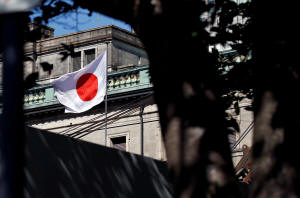|
Higher borrowing costs could also lead to a downturn in
long-term economic growth, S&P said.
Japanese bond yields have crept up on market expectations the
BOJ will phase out its yield control policy and start raising
interest rates under a new governor who succeeds incumbent
Haruhiko Kuroda in April.
While further rises in long-term interest rates could increase
Japan's already large debt burden, such factors are already
taken into account in the current "A+" sovereign debt rating,
said Kim Eng Tan, senior director of S&P's sovereign ratings
team in Asia-Pacific.
The bigger concern is whether Japanese firms, accustomed to many
years of ultra-low interest rates, could absorb higher funding
costs that come from tighter monetary policy, he told Reuters in
an interview.
S&P expects the BOJ to tighten policy only gradually with the
near-term impact on the economy likely limited, Tan added.
But the longer-term effect on Japanese firms and the broader
economy is a concern as "we're now at a stage where interest
rates seem to be rising, and there's quite a bit of uncertainty
about how far it will go before it stabilises again," he said.
Even a 1-2 percentage point increase in interest rates would
have a big impact on Japanese firms, particularly those in the
service-sector with low profits or high debt, Tan said.
"They've been used to a very low interest rate environment for
quite a while. So it is really the impact on the economy that
could potentially have an impact on our ratings," he said.
S&P currently assigns an "A+" long-term and "A-1" short-term
sovereign debt ratings on Japan. The outlook on the long-term
rating is stable.
(Reporting by Leika Kihara; Editing by Kim Coghill)
[© 2023 Thomson Reuters. All rights
reserved.]
This material may not be published,
broadcast, rewritten or redistributed.
Thompson Reuters is solely responsible for this content.

|
|





